KHDA Results 2017-18 – Who’s up, who’s down in the ratings
The Knowledge and Human Development Authority (KHDA) has issued the results of the remaining inspections for the 2017-18 academic year. This year marks the 10th since the KHDA inspection process began in Dubai’s schools, and the overview provided by the KHDA provides a wealth of information about how the quality of education in Dubai has improved in the intervening years. More details can be found after the updates on changes to the rankings this year.
SchoolsCompared.com has updated the complete listing so that parents can instantly identify those schools who have been upgraded, those who have not performed as well as previously, and the vast majority, who have retained their previous rating. Although a rating of Acceptable is formally the minimum rating schools are required to achieve – notably if they wish to expand – the KHDA’s aim is to ensure that all schools are rated at least Good.
The 2017-18 Asian School results are included in the listing, but for more details, read our article published at the time of the release of the results in February here. To get a better understanding of what the Inspectors are looking for, read our Guide here.
There are now 194 schools in Dubai offering 17 different curricula. Of the 166 schools inspected in Dubai in the current academic year, 14 were rated Outstanding, 27 rated Very Good, 67 rated Good, 51 Acceptable and 6 Weak. All schools rated Outstanding and Very Good, who participated in the Abundance Project last year and were not part of the 2016-17 inspection process, have been inspected this year. Notable changes among Outstanding school ratings were Dubai British School, a British Schools of the Middle East Outstanding-rated school, which achieved the highest rating. This will be a welcome development for the Taaleem Group of schools, who have been seeking the addition of a Dubai-based Outstanding school to add to the Outstanding-rated Raha International School in Abu Dhabi.
JESS Arabian Ranches, winner of the prestigious SchoolsCompared.com “Best School in the UAE 2017-18”, dropped down one grade to Very Good (the Primary School in Jumeirah retained its Outstanding rating) as did Dubai International Academy, the popular IB curriculum school. Much like The Indian High School, which suffered the same fate as JESS Arabian Ranches and Dubai International Academy in this inspection round, to our mind, the overall provision of JESS Arabian Ranches and Dubai International Academy (coupled with their outstanding academic results) mean that for the majority of parents, these are still outstanding schools. More on the SchoolsCompared.com Awards for the best schools in the UAE can be found here.
The remaining Outstanding-rated schools are Dubai College, Dubai English Speaking College, , GEMS Dubai American Academy, GEMS Jumeirah Primary School, GEMS Royal Dubai School, GEMS Wellington International School, Jumeirah College, Kings (Primary) School Dubai, Lycee Francais International Georges Pompidou (Nursery) School, Lycée Francais International Georges Pompidou, Al Ruwayyah and Repton School Dubai.
There were also some satisfying improvements for schools promoted to Very Good for the first time. These included Kings School Al Barsha, Nord Anglia International School Dubai and Safa Community School, all of whom achieved this rating on only their second inspection, and all of which are schools that we, at SchoolCompared.com, rate highly.
Two long-standing IB curriculum schools also made the step up to Very Good – GEMS World Academy, and Jumeira Baccalaureate School (a sister school within the Taaleem Group to newly-Outstanding Dubai British School), whilst Raffles World Academy (sister to Dubai International Academy), which offers a combined IB and IGCSE curriculum, was also rated Very Good. Universal American School, which offers a combined US/IB curriculum was the only US curriculum school to be upgraded.
Three further schools were also promoted to Very Good. These were AFLEC – Lycee Francais International de Dubai, Foremarke School Dubai (sister to Outstanding-rated Repton School Dubai and Victory Heights School.
Eight schools were inspected for the first time in 2017-18, and achieved ratings of Good and Acceptable. Among the “new” Good schools are Dubai British School Jumeirah Park, Hartland International School, Ranches Primary School and St. Mary’s Catholic High School, Muhaisnah. Other previously inspected schools promoted to Good are Al Basateen Nursery, Al Khaleej National School, Mirdif Private School, Star International School (Mirdiff), and The City School.
New schools rated Acceptable were AMLED School, Dovecote Primary School, and the Swiss International Scientific School Dubai. Dovecote Primary is managed by the same group as Repton School Dubai, whilst the Swiss School, with its bi-lingual IB curriculum, is a school that we, at SchoolsCompared.com. expected to perform well in its first inspection – the Acceptable rating for both is therefore somewhat unexpected. Ironically, whilst Star International School Mirdiff stepped up to Good, its sister school in Al Twar, moved down the ratings to Acceptable.
Three schools were have deemed to have improved from Weak to Acceptable – these were English Language Private School (UK curriculum), and The International Academic School and Al Maaref Private School, both US curriculum.
SchoolsCompared.com always encourages parents to look beyond the KHDA and ADEK ratings. Ultimately, the ratings represent a snapshot of a school’s performance at the time of inspection, together with the inspectors’ assessment against a range of criteria which are, inevitably, predominantly academically-focused. Often too, the overall rating does not offer the full story in terms of specific strengths (or weaknesses) that the inspectors have identified.
The latest inspection reports reveal some interesting statistics, many compared with the situation 10 years ago when the inspection process first commenced.
Overall in 2017-18, there is a higher proportion of schools in Dubai rated Good and better, with 86 schools having improved their overall performance judgment since their first inspection visit. Most schools have been showing steady improvements in almost all performance standards and indicators, in spite of expectations becoming more demanding over the years. Now, 66% of all students, and 62% of Emirati students attend Good or better schools across Dubai.
Estimates suggest that there are some 32,000 Emirati students attending private schools in Dubai, and recent initiatives to provide scholarships are aimed at increasing this number. The focus on provision for Emirati students and the National Agenda criteria becomes very clear once the statistics for local students are revealed. In 2008, 26% of Emirati students attended good or better schools. By 2018, the percentage of Emirati students in Good or better schools has grown to 62%, an increase of 36 percentage points. Inspection findings show Emirati students are most likely to achieve well in Good or better schools, especially in UK curriculum schools.
By comparison, in 2017-2018, a total of 11 private Ministry of Education (MoE) curriculum schools were inspected in Dubai. Only 23% of students who attend a MoE curriculum school are in Good or better schools, an increase of only 7 percentage points, since DSIB started inspecting MoE curriculum schools in 2008-2009.
These findings are also clearly driving the National Agenda priorities in terms of curriculum requirements such as Moral Education, UAE Social Studies and International Benchmark tests (PISA and TIMMS). The National Agenda targets that 98% of Emirati students will complete High School and that many will go on to university.
A further area of positive achievement is in relation to Students of Determination. 66% of schools providing provision for students of determination are now of a Good or better quality. This is a 28 percentage point increase when compared to 2014 when only 39% of schools were judged to be at this quality level. Importantly, 75% of students of determination, a population size of over 10,000, now benefit from being educated within schools that provide a quality of service that is good or better.
In 2017-2018, 63 UK curriculum schools were inspected in Dubai. 77% of students who attend a UK curriculum school are in Good or better schools. This represents an increase of 42 percentage points since DSIB started inspections in 2008-2009. The KHDA has determined that the quality of leadership is the most significant factor affecting their improvement.
A total of 11 IB curriculum schools were inspected in Dubai in the current academic year. 94% of students who attend an IB curriculum school are in Good or better schools, an increase of 81 percentage points, since DSIB started inspecting IB curriculum schools in 2008-2009. Leadership is judged to be Good or better in 90% of IB curriculum schools in 2017-2018 compared to 71% in 2008-2009.
31 Indian curriculum schools were inspected in Dubai. 69% of students who attend an Indian curriculum school are in Good or better schools, an increase of 24 percentage points since DSIB started inspecting Indian curriculum schools in 2009-2010. Leadership is judged to be Good or better in 72% of Indian curriculum schools in 2017-2018 compared to 50% in 2009-2010.
In 2017-2018, 29 US curriculum schools were inspected in Dubai. 57% of students who attend a US curriculum school are in Good or better schools, an increase of 27 percentage points, since DSIB started inspections in 2008-2009, but considerably below that of UK, Indian and IB curriculum schools. DSIB Inspection findings indicate where leadership is Acceptable, it is mainly because Principals of these schools do not know their schools well enough.
Despite the improvements shown, there are still 51 Acceptable schools educating 80,500 students and 6 weak schools educating 10,000 students. This represents almost a quarter of the 194 private schools in Dubai and 33% of the 266,000 students in private schools in the emirate.
When reviewing school inspection reports, parents may also find it helpful to note the conclusions reached by the DSIB in relation to schools that have been rated Acceptable or Weak over the past decade. They have generally been found to share the following common factors:
• School leaders do not fully understand the principles and pedagogy of good practice.
• Staff do not focus on active and experiential learning. As a result, many children and students do not develop good independent learning skills.
• School leaders do not use results from the external benchmarking assessments to compare their students’ outcomes with those of other students internationally.
• Leaders do not use internal and external assessments to inform their improvement plans, and to evaluate the effectiveness of teaching and learning.
• Teachers are not adapting the curriculum across the school and subjects, to ensure better progression and inclusion of the skills required to succeed in external examinations.
• Teachers do not use strategies that motivate students to conduct research, or provide them with the necessary resources and learning skills to do so.
• Teachers do not plan activities, and skillfully ask questions to elicit deeper understanding and promote critical thinking. They do not include open-ended problems and applications in their lessons and assessments.
• Governors do not include representation from different stakeholders. They do not actively seek and consider stakeholders’ views in order to gain in-depth knowledge about the school.
• Governors do not systematically monitor the school’s actions and hold senior leaders to account for the quality of the school’s performance, according to agreed outcomes for students.
We would always encourage parents to read the report in full, to see how specific sections and subjects have been rated and consider how relevant these may be to your children. From the latest Inspection findings, it is clear that parents should also consider carefully the findings in relation to the leadership and governance of the school and the practice of its teachers. Ultimately, these areas appear to be the key to the ability of a school to improve.
Then, we suggest you cross-reference these findings with SchoolsCompared.com’s reviews, which provide parents with a range of additional information, focused on our expectations of schools’ future as well as current performance. There is plentiful information to enable parents to make objective decisions on schools that will best support their children’s education.




















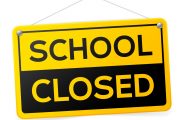



























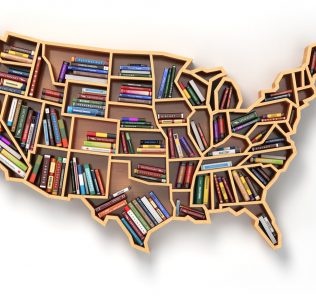
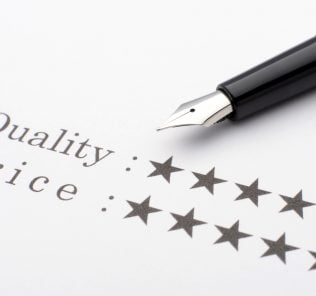
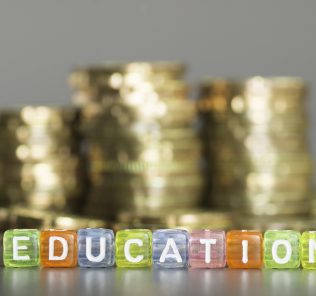












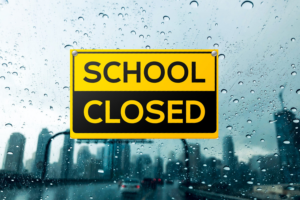
Leave a Response